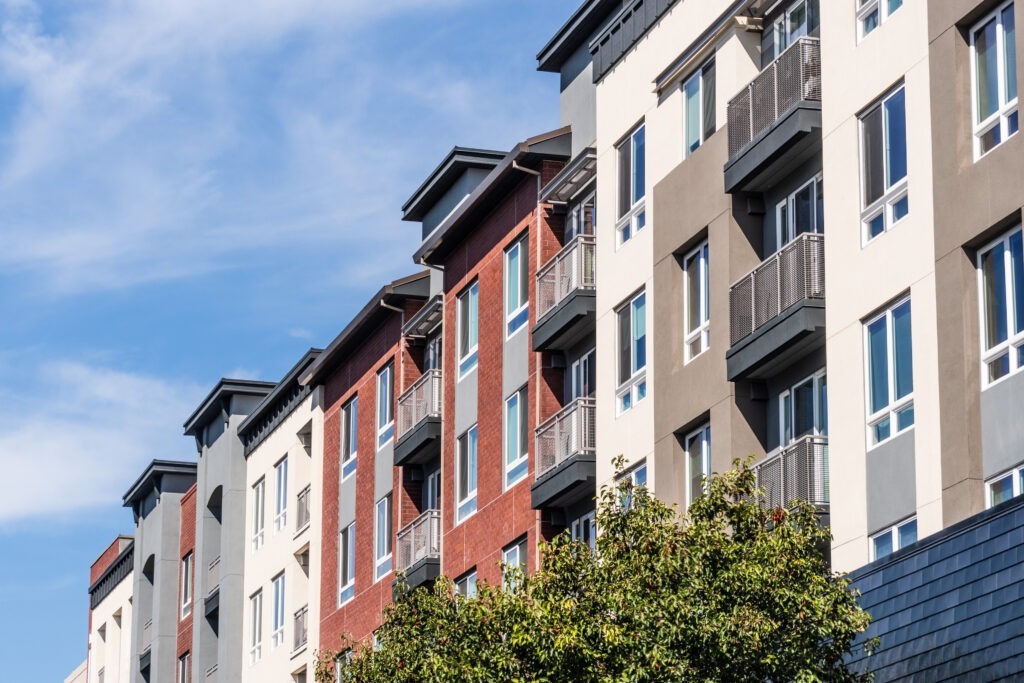
Find out if you qualify for Cost Segregation in Massachusetts
to increase your tax savings and maximize depreciation.

For companies that own commercial real estate, multi-family housing, or tenant improvements, Cost Segregation services are one of the most significant opportunities available to reduce tax liability and increase short-term cash flow. Cost Segregation enables these property owners to free up capital, especially during times when investing in your business is critical.
A Cost Segregation study might be thought of as an interest-free loan in that it front-loads the depreciation expense deductions a property would otherwise receive on a straight-line basis over 27.5 or 39 years.
Cost Segregation studies can free up capital by accelerating the depreciation of certain assets or improvements eligible for shorter tax recovery periods which are generally 5, 7 and 15-year. Additionally, a study can properly identify and document Qualified Improvement Property (QIP) and various expense treatment opportunities for certain properties.
Massachusetts buildings should meet the following requirements in order to have a Cost Segregation study conducted:
Source Advisors excels in Utah-specific Cost Segregation, covering a wide range of building types. Our Cost Segregation services are designed to exceed the IRS’ Cost Segregation Audit Techniques Guide: Chapter 4-Principal Elements of a Quality Cost Segregation Study and Report.
Every basic Cost Segregation service includes the following:
Every Source Advisors Massachusetts study begins with our detailed pre-qualification process where the scope of work is defined and an estimate of benefits is generated. A flat fee quote is also presented with the estimate of benefits.
Once the proposal is signed, our team will gather and analyze the information provided by you, such as: Construction drawings, invoices, change orders, depreciation schedules, etc.
We will identify all eligible interior and exterior improvement, eligible for reclassification to shorter tax lives. In the likely event that the invoice detail is insufficient for the entire study, we will augment the invoices with detailed estimates derived from the construction drawings and site visit of the property. The results will be presented in a report that includes our methodology, relevant case law, definitions, property description, photos, and detailed schedules of our calculations.
Each study is reviewed a minimum of three times to ensure accuracy and quality.
A draft report is first issued and discussions are held with the taxpayer and their CPA to review Source Advisors’ conclusions and findings. Once all questions have been addressed and in the rare case, adjustments made to the report, the final report is issued.
In the event that a study is reviewed in audit, Source Advisors’ highly experienced management team will provide audit support through appeals.

The following Cost Segregation studies are available in Massachusetts:
Identifies §1245 Property (5, 7, & 15-year property (Typ.)). Includes: §1250 Qualified Leasehold Improvements, Qualified Retail Improvements, & Qualified Restaurant Improvements (15-year straight-line property), as well as §1250 Qualified Improvement Property (15-year straight-line property and bonus depreciation for §1250 interior improvements after 12/31/2017). Property is eligible for Routine Maintenance Safe Harbors, De Minimis. Also includes repairs associated with remodeling of existing buildings.
Identifies Units of Property, building systems, and major components and provides more detail on 27.5 and 39 year assets that are likely to be replaced during the ownership period. The level of detail within this study is highly customizable depending on the type of property as well as the property owner’s tax strategy and future Tangible Property Regulations needs.
This is a current year study only. Included is a detailed analysis of existing assets removed from service in the current tax year for the purpose of creating a disposition expense. It also includes both §1245 and §1250 assets.
Fixed Asset Reviews allow companies to correct past depreciation schedules and maximize depreciation expense deductions, achieving compliance and setting a precedent for managing depreciation schedules going forward. While fixed asset reviews are not a new concept, the opportunities afforded to taxpayers by the Tangible Property Regulations, PATH Act, Tax Cuts and Jobs Act, and CARES Act are highly complex and difficult to apply.
A Source Advisors Fixed Asset Review is a detailed review of a taxpayer’s depreciation schedule that might include one or a combination of the following: Cost Segregation opportunities, Repair opportunities or risks, §1245 property improperly capitalized (or bonus incorrectly applied), Full Asset Dispositions, Partial Asset Dispositions, Opportunities to apply bonus depreciation, Opportunities to apply for qualified leasehold, restaurant and retail improvements for year placed in service prior to 2018, Qualified Improvement Property (QIP) for years placed in service after 2015, and Qualified Real Property (QRP) for years placed in service after 2017.
If your company owns or leases commercial buildings, and you have built, installed, or retrofitted the property to be more energy efficient, you may be eligible to deduct all or part of the costs associated with the construction, installation, or retrofit.
The Energy-Efficient Commercial Building Tax Deduction, or §179D, provides a tax deduction of up to $1.80 per square foot for the installation of systems that reduce the total energy and power costs by 50 percent or more when compared to an ASHRAE standard reference building.
Energy-efficiency study for residential housing. A $2,500 per dwelling tax credit that offers developers a means to offset the costs associated with building energy-efficient single-family or multifamily properties. The credit provides a dollar-for-dollar offset against taxes owed or paid in the tax year in which the property is sold or leased.
Our Cost Segregation specialists can help reduce your tax liability for the following commercial building types throughout Massachusetts:

The best time to have a Cost Segregation service conducted for your commercial property is the year you are purchasing the property, remodeling it, or constructing it.
For those interested in having a Cost Segregation study conducted on buildings that you have owed for more than one year, our team might be able to perform a lookback study. This would correct your depreciation schedule going forward and generate a catch-up in missed depreciation (§ 481(a) adjustment).
Our team of architects, professional engineers, CPAs, MBAs, and LEED-certified professionals have spent between 10 and 20+ years managing Cost Segregation services. Each Cost Segregation specialist is highly trained in working with clients, gathering the necessary data, and analyzing each building to assure that we identify the maximum benefit that each taxpayer is entitled to receive.